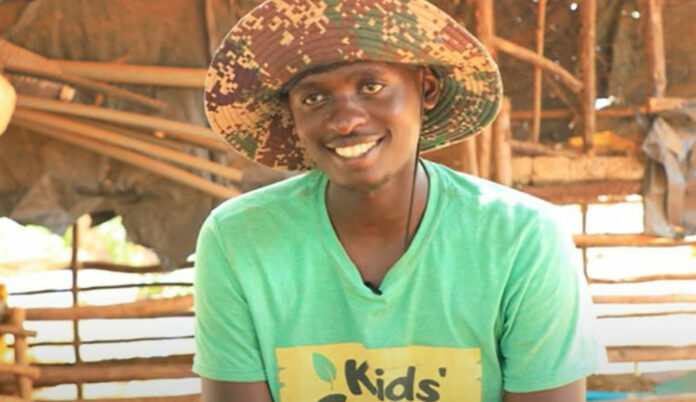32-year-old Samuel Wangige is a smallholder farmer who has been practising his trade for a year in Yatta Constituency. Before turning to farming, Samuel worked in the medical field for 7 years before resigning in 2023.
The Psychology and Political Science graduate from the UoN found a passion for agribusiness. After conducting research, he realized a huge potential for profitability in the field. This research informed his decision to quit his job and pursue farming.
Samuel is of the opinion that Semi-Arid lands, specifically in the Ukambani region, will be the next food basket for the Kenyan economy which relies heavily on agriculture.
“I was convinced beyond doubt that agriculture can pay…you can experiment on so many levels. It’s untapped, it’s our biggest earner in this country and the backbone of our economy. The white collar is really bottlenecked,” he said.
He grows various crops on his farm like fruits such as pawpaws, oranges, passion fruits, and mangoes, alongside vegetables like sukuma wiki and spinach, as well as red onions and Napier grass. His farm produce draws customers from far away.
When it comes to farming in the Ukambani region, Samuel firmly subscribes to the belief that ‘Rain is a substitute for irrigation’. Therefore, he employs drip irrigation on his farm while also relying on rainfall to complement his efforts and achieve a bumper harvest.
He is doing farming at an experimental level, and he is convinced that the region can yield very heavily which can go a long way in feeding the country.
He noted the importance of scientific research papers from institutions in guiding smallholder farmers to avoid potential pitfalls.
I started farming when Covid closed my business, now I make a fortune from exports
Samuel observed a huge challenge during his earlier times in the Ukambani area: the lack of access to fresh milk. Upon inquiry, he discovered that this was due to the high cost of feed production.
This is why Samuel decided to plant Napier so that he could potentially see whether they could address the issue of keeping animals for dairy production. He has planted Super Napier and Pak Chong.
“The issue of feeds, we can sort them here. With drip systems and good catchment programs, you can actually grow feeds for the animals,” he explained further, hoping to succeed in turning his farm into a dairy production area.
“When you think of water in Ukambani, you think of water conservation. When you think of irrigation, you think of drip irrigation which actually saves 80% of the water you use,” Samuel added.
To meet the water needs of his farm, Samuel has installed a borehole powered by solar energy, capable of pumping 15,000 litres of water.
However, for precision farming and to sustain his business, Samuel estimates that his farm requires access to a total of 60,000 litres of water. He hopes that the local government will help farmers access a dam.
“As a young person in this country, you cannot say there’s no work. If you’re in Ukambani, red onion (kitunguu) is working. We’ve tried it out, it’s a semi-arid crop which uses very minimal water,” he said.
Samuel noted that he sources his inspiration from H.E President William Ruto who is also a farmer.
“He showed us as young Kenyans that you can do anything, you can achieve your biggest dreams if you push yourself…if this guy is a product of our education system from Kindergarten to PhD, and he’s done it, why not?”
“The future is in Ukambani…the food basket of this country was in Rift Valley, Central because of the good rains and agricultural lands. But due to poor land policies, we subdivided those places into smaller areas for settlement,” he concluded.









